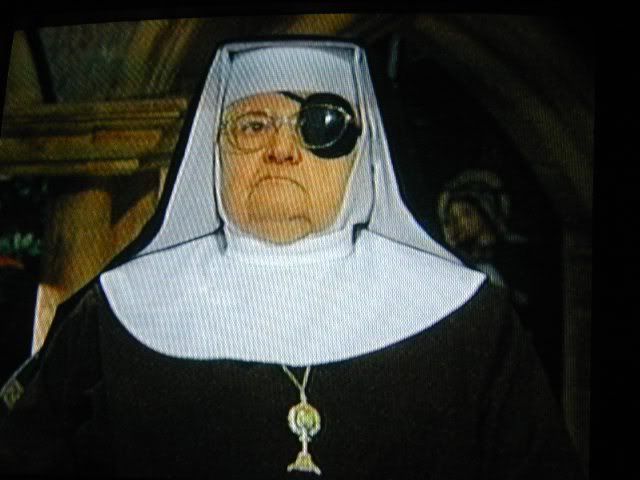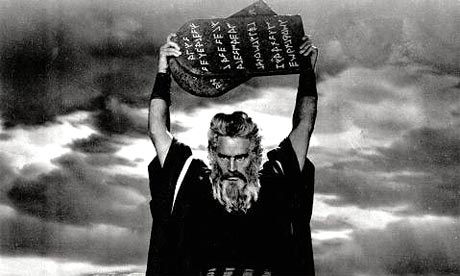Also, remember, God does have a sense of humor; just look at the platypus.
For Part 1, click here.
The Perfection of Man and the Elder Souls
 My last post delved into my ideas on God. One of my observations was that "...God is within us, within the world, and beyond it as well." In the comment section comes a comment from Shaw (which is where I found the FSM link), who, after explaining how the Catholic Church made her an atheist, included this comment: "I believe the "devil" is the worst of our human nature; I believe that "god" is the best of our human nature."
My last post delved into my ideas on God. One of my observations was that "...God is within us, within the world, and beyond it as well." In the comment section comes a comment from Shaw (which is where I found the FSM link), who, after explaining how the Catholic Church made her an atheist, included this comment: "I believe the "devil" is the worst of our human nature; I believe that "god" is the best of our human nature."(and I love any comment that uses the semicolon)
I illustrate this because it shows our attempts to explain the unexplainable, rationalize the unrationalizable, and proves that both atheist and faithful see the same thing, even if they use different language and see it from a different direction (especially when the Catholics are involved).
I've always believed in the soul, or spirit, or essence, or whatever you want to call the spiritual essence of humanity. Very simply, the idea of nonexistence at death for a mind that can see and perceive beyond simple senses is something I've never been able to accept. It is certainly a rational possibility, and if it is fact, then I sure won't know. Personally, I'd prefer Catholic Hell to nonexistence. At least then you get some good death metal and some surfing in on the lake of fire. After all, eternal torment is something (and easier after Catholic school).
 I've always thought of our souls as something that transcends the mortal realm, and has the ability to live on again (yes, a version of reincarnation). But I don't believe this is everybody, and I can't explain all the details. I do know that it has something to do with awareness, as in some people achieve it, and move on to another life; some don't and become nothing. And those who have been around many lives eventually move on. And I suspect I've been around a while (thus this makes some semblance of sense to me.
I've always thought of our souls as something that transcends the mortal realm, and has the ability to live on again (yes, a version of reincarnation). But I don't believe this is everybody, and I can't explain all the details. I do know that it has something to do with awareness, as in some people achieve it, and move on to another life; some don't and become nothing. And those who have been around many lives eventually move on. And I suspect I've been around a while (thus this makes some semblance of sense to me. As was noted we have the capacity for both great good and excessive evil (and always asinine alliteration). I believe that most people, in a vacuum, would lean toward good. However, existence requires a balance. So while everyone will try to be good (gotta love free will), the presence of evil in the world will always balance out. Thus, in the political arena, things like world peace are noble, but in reality a load of horseshit. It sucks, but there it is.
As was noted we have the capacity for both great good and excessive evil (and always asinine alliteration). I believe that most people, in a vacuum, would lean toward good. However, existence requires a balance. So while everyone will try to be good (gotta love free will), the presence of evil in the world will always balance out. Thus, in the political arena, things like world peace are noble, but in reality a load of horseshit. It sucks, but there it is.So with the duality of Man, it falls to the individual. And much of organized religion is dedicated to helping Man become better (in large and shiny buildings while guys with baskets collect cash (been there, done that)). Sometimes, it's necessary. Sometimes, it's not. So I'll leave this chapter with some quotes from Abraham Lincoln that pretty much sum it up:
“When I do good, I feel good. When I do bad, I feel bad. That's my religion.”
“Whatever you are, be a good one.”
And a clip:
My next post will cover many other smaller issues, things that I haven't covered so far.

2 comments:
"Personally, I'd prefer Catholic Hell to nonexistence."
I hate to break this to you, Patrick, but Pope JPII said this about heaven and hell:
"In three controversial Wednesday Audiences, Pope John Paul II pointed out that the essential characteristic of heaven, hell or purgatory is that they are states of being of a spirit (angel/demon) or human soul, rather than places, as commonly perceived and represented in human language. This language of place is, according to the Pope, inadequate to describe the realities involved, since it is tied to the temporal order in which this world and we exist."
This gets into the realm of supernaturalism, and in order to continue in that realm, one must accept assumptions by religious authorities on what cannot be proved or disproved. IMHO, this is the same as arguing about how many angels can dance on the head of a pin.
No one knows. No one has come back from the dead to tell us.
Jesus doesn't count, since there is absolutely no documentation, other than from his devoted followers, that can attest to his resurrection from the dead. It would be like believing L. Ron Hubbard's followers telling us that he appeared to them after his death, and no one else but his followers saw him. So the "Gospels" are not reliable as proof of Jesus' resurrection, having been written many decades after the claimed event.
One needs FAITH to accept the story, and we know what the definition of faith is: Belief in something without evidence.
So we're back to the beginning.
You and many others of good will believe in some form of something after death, some ineffable something that is extratemporal.
This can't be proved or disproved. It's very personal and it helps lots of humans get through this very difficult life, and this is quite understandable and a very human way of dealing with life's exigencies.
I do know this: That every form of organized religion eventually becomes the very thing it organized to transcend. Organized religion is, afterall, run by very human, very flawed men, and they bring their prejudices, hatreds, and fears to bear on their godly ideas.
Shaw: You gotta admit though, if there were a Hell with the lake of fire, you know you'd be down for some surfing to death metal. And your skin burning off every minute.
Mmmmm, skin. :)
That every form of organized religion eventually becomes the very thing it organized to transcend.That's the main reason I'm increasingly likely to not find a new one. I may start one, but not join one.
Post a Comment